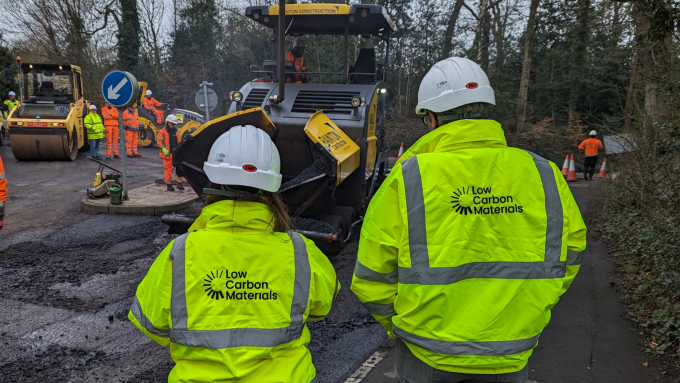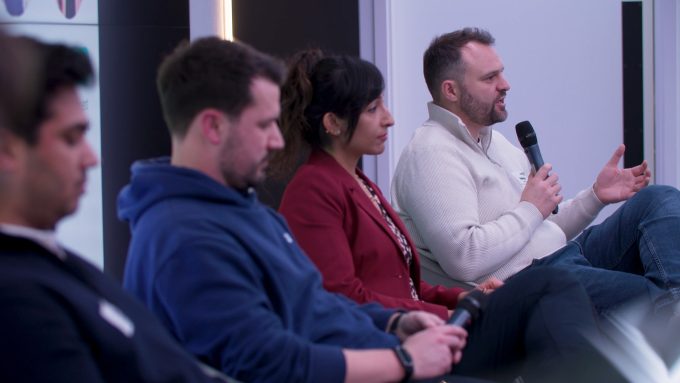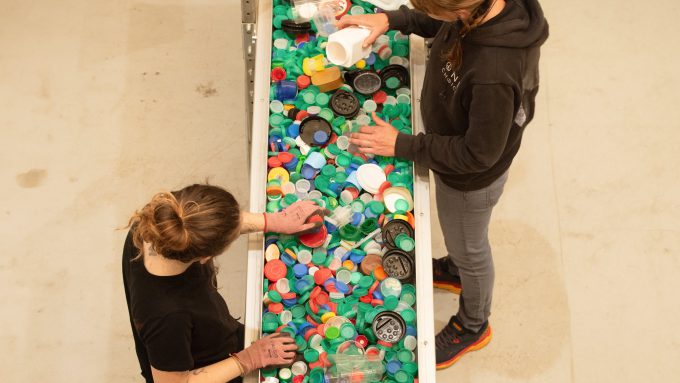
Meet the Academic breathing new life into ailing cities

“There are too many academics who sit on the sidelines; but I’m not one of those,” asserts Rachel Granger, a Professor of Urban Economics at De Montfort University, Leicester. “I’m very much a problem solver, and want to help cities innovate in order to function better.”
Rachel has teamed up with Connected Places Catapult as one of its new Researchers in Residence to explore new ways of encouraging non-public civic investment, alongside the Innovation Places Leadership Academy.
She is keen to encourage economic growth, but in a manner that brings local people along – and this means creating what she calls ‘bonds of attachment’ between citizens and cities.
“The aim is to get the best out of places, but without leaving anyone behind,” she explains. “This is a project I’ve wanted to do for 20 years. I haven’t always been in academia, and spent time in local government and with the European Commission. Places, people and policy have always been important to me.”Rachel Granger, a Professor of Urban Economics at De Montfort University, Leicester
Rachel says that seeking out investment to generate prosperity is a worthy ambition. “But we have a track record of repeating the same models and making the same mistakes. We need a break with the past, and a reset.”
Rather than chasing conventional sources of public or private funding, she has two ideas she wants to explore: one borrowed and another new.
Exploring municipal bonds
Rachel’s first aim is to raise the profile of ‘municipal bonds’, a form of investment designed to raise capital for civic good. It was used by Sheffield over 30 years ago to build social housing, and in New York to fund the Statue of Liberty.
Many individuals invest relatively small amounts for a fixed period and make a modest return.
“There is scope to make this mainstream, to generate extra capital for places to grow,” Rachel says. “One of the benefits of municipal bonds is because local people are lending money, they are more likely to have bonds of attachment to their city.”
Residents sometimes fall out of love with their localities, she notes, “and we need to rebuild some love if we're going to make places successful again”. Places that build a sense of goodwill among locals tend to see fewer people leaving, she adds.

Introducing ‘smart commons’
Rachel’s second aim is to explore a concept she describes as “risky” and has never – to her knowledge – been developed as a working model. It is known as ‘smart commons’ and is a way of allocating land in locations ripe for renewal.
“Land is handed over to – or shared with – communities, so people can extract value and use it for local good,” she explains. “It’s been mooted for cities in America where waterfront developments could include more social benefit and not force communities out.”
At the end of her research, Rachel aims to write a ‘playbook’ to show policymakers what she thinks could be achieved in creating ‘investable spaces’. She also wants to convene a national board of senior leaders and encourage them to “think about civic investment in a more integrated way”.
Focusing on cities looking back and forward
Rachel suggests some places are products of their past – due to de-industrialisation, a decline of jobs, or loss of wealth – whereas others are more future focused. “I want to study both,” she says, adding that great cities strive for a mix of good jobs, larger household outcomes, social-wellbeing and environmental sustainability.
“Society has been trying to address economic growth and how it trickles down to people for over 100 years. There are some wicked problems to address, such as the growing gap between rich and poor, so maybe we need to be braver and do things differently.”
Rachel points to the gentrification of certain cities in the UK, which often leads to economic growth but can cause social problems; such as making places unaffordable for many and creating ‘monocultures’ of individuals from wealthy demographics.
“Marketing your city for professionals as a desirable place can come at a heavy cost and lead to rampant gentrification and an overheated economy.”
Whereas other cities, she says, such Manchester, Sheffield and Newcastle have tried to “grow in a manner that keeps inclusion at their core”. She also points to Copenhagen in Denmark which thinks about maximising opportunities for cultural activities that do not necessarily generate wealth, but help to create desirable places.
Rachel adds that central business districts should not just become “zones of conspicuous consumption” but be about “sharing experiences”.

Understanding local issues
Rachel grew up in Southwest England, enjoyed geography at school and studied economics at Bristol University before going to work for the European Commission in Brussels for two years; focused on regional policy.
“This was 1992 and it was an exciting time to be working in Brussels because of what was being put on the agenda for the UK around the wellbeing and prosperity of places.
“I was always making comparisons between towns and cities and looking at how things could be done better. I also became fascinated by different approaches to developing regions.”Rachel Granger, a Professor of Urban Economics at De Montfort University, Leicester
She went to work for local government in both Plymouth and Nottingham, before embarking on Masters and PhD courses in public policy and economic geography at the University of Birmingham, with a focus on cities.
While in the Southwest, she got to understand more fully of the problems with poverty and lower incomes in parts of Devon and Cornwall; but also of the ambition of many locations she describes as ‘plucky places’.
After making the switch to academia, Rachel joined De Montfort University Leicester in 2016 and set up a local business network with over 100 companies focused on creating wealth. Notable achievements included securing £1 million of investment for the textile industry in Leicester, and £5 million for the creative sector in the East Midlands.
Working with the Catapult
Rachel got involved with Connected Places Catapult after “watching them for afar” for several years and attending events. “There is a sparky feel about what they do.” She also appreciates that Catapult staff involved in the Innovation Places Leadership Academy have been open to “listening to me about the possibilities of trying something new”.
She also valued conversations around what the project may mean for her own career development.
Several years from now, Rachel hopes her study will lead to “some proper policy development around alternative financing models. Getting them to look at alternatives would be fantastic”.
For others looking to follow her lead, she advises not to become obsessed about performance outputs. “Stay true to your heart and think about impact; how you are going to convert actions into value that changes lives.”
Rachel Granger’s placement is funded by the Innovation Launchpad Network+, an EPSRC-funded project which focuses on bringing together leading universities and the Catapult Network.
Read more about the work of the Innovation Places Leadership Academy.
Find out more about the Researchers in Residence programme here. To be alerted about opportunities at Connected Places Catapult, join our Academic Network.





